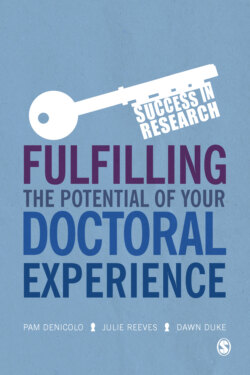Читать книгу Fulfilling the Potential of Your Doctoral Experience - Pam Denicolo - Страница 15
На сайте Литреса книга снята с продажи.
Vestiges of the past
ОглавлениеHistorically, the purpose of the doctorate was to train people to become academics – future stewards of the discipline – through the process of a form of apprenticeship to an established academic. The evolution of the doctorate from an academic research credential to a process of researcher development to prepare researchers for a wider range of employment only began in earnest towards the end of the last century, some twenty years ago. Therefore, there are still many people employed in higher education posts who experienced that former function of the doctorate and, indeed, still perceive the doctoral process and purpose in that way for a variety of reasons. (For instance: they may believe it is best; they know of no other version; they are too busy with teaching and research to notice changes; they deliberately ignore new policy and procedures that may seem to threaten their professional identity.) We can have some empathy with those positions and have acknowledged elsewhere (Denicolo, 2016) that widening participation (sometimes seen as massification in higher education), the rise of credentialism, increased financial pressures and the requirement of research to make a significant contribution to the national economy and social wellbeing, present challenges to the apprenticeship model. However, our purpose here is to help you thrive in the doctoral world as it is now and is likely to be for some time in the future. The purpose of the doctorate nowadays has been elaborated to include preparing people for a wide world of work to which they will contribute a range of skills and attributes acquired or honed through the doctoral research process. We will elaborate on this next.
